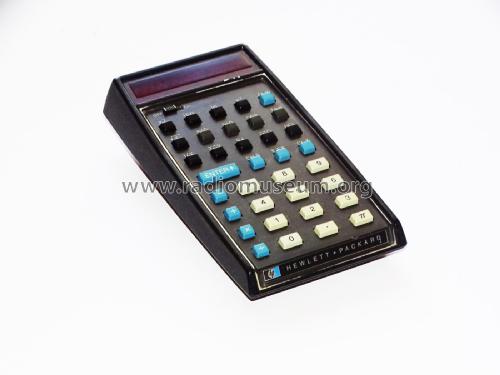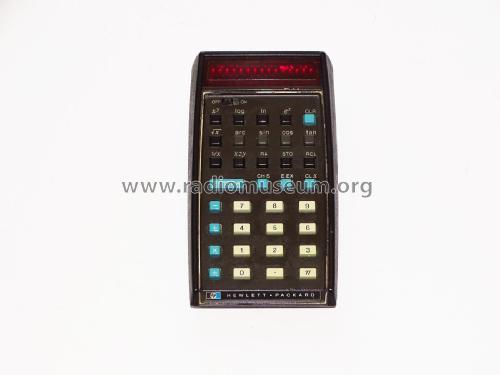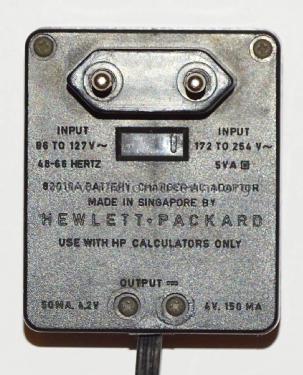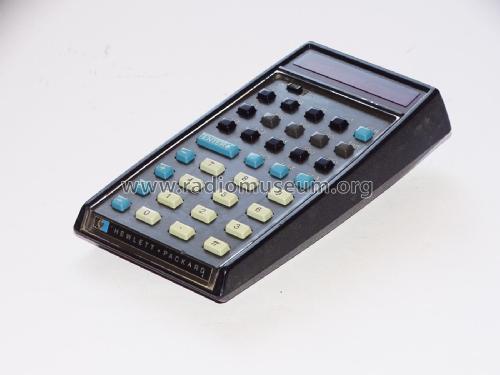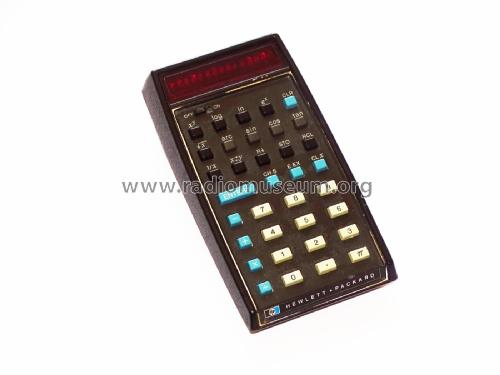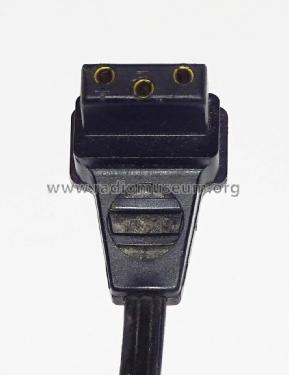Electronic Pocket Calculator HP-35
Hewlett-Packard, (HP); Palo Alto, CA
- Country
- United States of America (USA)
- Manufacturer / Brand
- Hewlett-Packard, (HP); Palo Alto, CA
- Year
- 1972–1975
- Category
- Signal Processing and Computing
- Radiomuseum.org ID
- 304867
Click on the schematic thumbnail to request the schematic as a free document.
- Wave bands
- - without
- Power type and voltage
- Storage Battery for all (e.g. for car radios and amateur radios) / NiCd: 3 x 1.2 Volt
- Loudspeaker
- - - No sound reproduction output.
- Material
- Plastics (no bakelite or catalin)
- from Radiomuseum.org
- Model: Electronic Pocket Calculator HP-35 - Hewlett-Packard, HP; Palo Alto
- Shape
- Very small Portable or Pocket-Set (Handheld) < 8 inch.
- Dimensions (WHD)
- 81 x 35 x 150 mm / 3.2 x 1.4 x 5.9 inch
- Notes
-
The HP-35 was the world's first scientific pocket calculator, and the first to use Reverse Polish Notation, which obviates the need for parentheses by placing the operators after the operands. RPN is very efficient for evaluating mathematical expressions. It has a 15-digit LED display and offers 10-digit accuracy (depending on the function).
Powered by 3 AA-size NiCd rechargeable batteries, or directly by its adapter from AC mains.
Early production versions of the calculator were labelled only "Hewlett Packard", whereas later models carried the label "Hewlett Packard 35" on the faceplate. The number refers to the fact that the calculator has 35 keys. Two bugs were discovered after 25,000 calculators had been sold, but fewer than 25% of the faulty units were returned for the free replacement that was offered by HP. These early calculators are now worth more to collectors.
The HP-35 was so rugged that it is said that sales people dropped it intentionally for demonstration purposes. The calculator revolutionised the engineering profession by obsoleting the slide rule, and HP sold over 300,000 before it was discontinued in 1975. In 2009, HP received an IEEE Milestone award for the HP-35.
- Net weight (2.2 lb = 1 kg)
- 0.260 kg / 0 lb 9.2 oz (0.573 lb)
- Price in first year of sale
- 395.00 USD
- Author
- Model page created by Bruce Taylor. See "Data change" for further contributors.
- Other Models
-
Here you find 395 models, 363 with images and 139 with schematics for wireless sets etc. In French: TSF for Télégraphie sans fil.
All listed radios etc. from Hewlett-Packard, (HP); Palo Alto, CA
Collections
The model Electronic Pocket Calculator is part of the collections of the following members.

